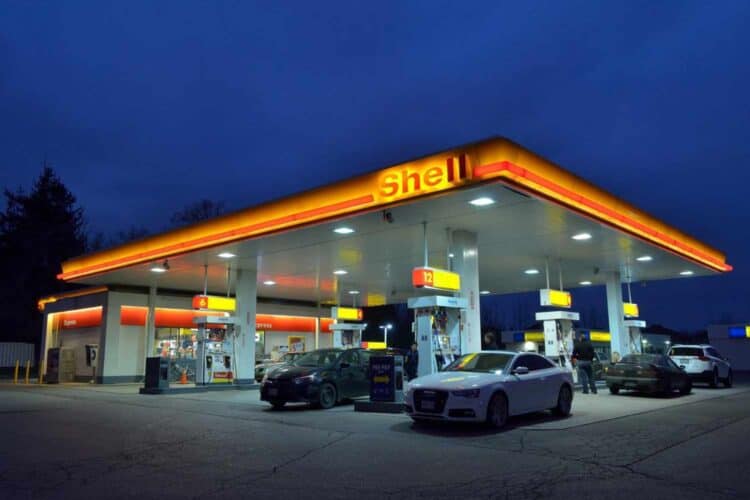New petrol prices are set to take effect in Gauteng on Wednesday, 6 December 2023, with notable decreases across various fuel types.
Petrol prices: Here’s how much a litre may cost from Wednesday, 6 December 2023
In a statement, the Energy Department revealed that from Wednesday, both grades of Petrol, 93 and 95 (ULP and LRP), will witness a decrease of R0.65 per litre in retail price.
Similarly, Diesel 0.05% Sulphur and Diesel 0.005% Sulphur will also decrease in wholesale price by R2.35 and R2.41 per litre, respectively.
Illuminating Paraffin is set to decrease by R1.71 per litre in wholesale price and R2.28 per litre in the Single Maximum National Retail Price (SMNRP).
Conversely, the maximum retail price for LPGAS will increase by R1.67 per kilogram.
The department confirmed adjustments in fuel prices for this month were due to the following factors:
1. Rand depreciation against the US Dollar
The average international product prices for Petrol, Diesel and Illuminating Paraffin decreased during the period under review. The Rand appreciated against the US Dollar during the period under review, on average, when compared to the previous period.
The average Rand/US Dollar exchange rate for the period 27 October 2023 to 30 November 2023 was 18.5756 compared to 19.0797 during the previous period. This led to a lower contribution to the Basic Fuel Prices of petrol, diesel and illuminating paraffin by 33.11 c/l, 36.49 c/l and 37.68 c/l respectively.
2. Regulatory Accounts System
In line with the application of the Regulatory Accounts System the Minister of Mineral Resources and Energy has approved a net increase of 60.1 c/l in the annual margin adjustments on petrol and a net increase of 13.88 c/l on diesel and illuminating paraffin wholesale prices, with effect from 06 December 2023.
3. Slate Levy
The combined cumulative petrol and diesel Slate balances at the end of October 2023 amounted to a negative balance of R 3.100 billion. In line with the provisions of the Self-Adjusting Slate Levy Mechanism, a Slate Levy of 26.32 c/l (decrease of 26.30 c/l) will be implemented into the price structures of petrol and diesel with effect from 06 December 2023.
Here is a look at the estimated petrol price changes expected on Wednesday, 6 December 2023.
PLEASE NOTE: The petrol price adjustments listed below are directly quoted from the Department of Energy’s monthly press release. Despite our best efforts to ensure accurate reporting, it is still the sole responsibility of the reader to double-check petrol prices. Swisher Post, its parent company, partners and affiliates shall not be held liable for any consequence that arises from the journalistic duties performed in sharing this content.
Inland
| TYPE | PRICE (p/l) | CHANGE |
| Petrol 95 | R23.25 | -R0.65 |
| Petrol 93 | R22.79 | -R0.65 |
| Diesel 0.05% | R21.82 | -R2.35 |
| Diesel 0.005% | R21.99 | -R2.41 |
Coastal
| TYPE | PRICE (p/l) | CHANGE |
| Petrol 95 | R22.53 | -R0.65 |
| Petrol 93 | R22.07 | -R0.65 |
| Diesel 0.05% | R21.09 | -R2.35 |
| Diesel 0.005% | R21.30 | -R2.41 |
What goes into the final retail price of fuel in South Africa?
Determining the final retail price of petrol in South Africa relies heavily on the rand’s performance in currency markets and oil price movements.
Using this information, the CEF can formulate basic fuel price (BFP) estimates which, in essence, offer South African importers a snapshot into the cost of buying petrol from an international refinery, transporting the product and ensuring it against possible losses at sea and on land.
However, before the retail price of petrol is finalised at petrol stations, several additional costs are included in the BFP:
Government levies
- IP tracer levy (reimbursement to the oil industry for buying IP tracer dye and injecting it into IP to curtail the mixing of IP and diesel)
- General Fuel levy (tax levied by the government)
- Slate levy (to finance the cumulative under-recovery of the industry)
- RAF levy (to compensate for people involved in road crashes and accidents)
- Petroleum products levy (reimbursement to the pipeline users for the applicable NERSA tariff on transporting fuel through the pipeline)
Additional costs
- Wholesale margin (markup to the price of a product to account for wholesaling costs)
- Service cost recoveries
- Storage, handling and delivery costs
- Distribution costs
- Dealers margin (commission to the fuel pump dealers for retail operation)
- Zone differential (applicable to inland regions)
- Customs and excise duty
Petrol price adjustments are generally made on the first Wednesday of every month by the Department of Energy.






